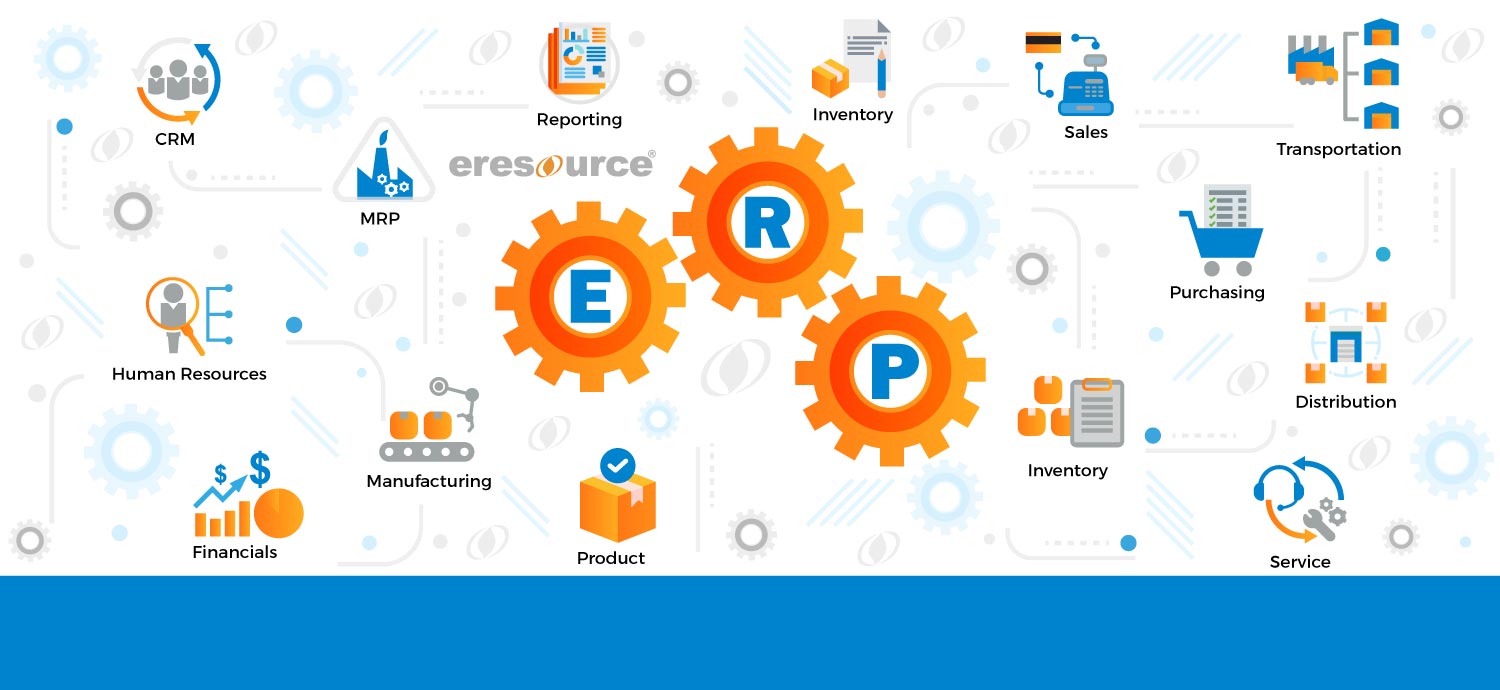The automotive industry has revolutionized over these past few years. Moreover, this industry contributes massively to the global economy. As a dynamic and customer-driven industry, the automotive manufacturing units deal with the components of different sizes and varieties required in workstations to assemble, polish, and paint automobiles and their parts.
The global automotive industry tends to grow in the future as well. Manufacturers are witnessing higher demand for autonomous vehicles, electric automobiles, and connected mobility while focusing on customer satisfaction. Since recalls and quality-related issues are likely to impact the OEMs brand negatively, the supply chain feels the pressure of transforming the enterprise while manufacturing high-quality products, delivering finished products on time, and maintaining profitability.
Modern ERP for Automotive Industry can help companies connect employees, processes, machinery, data, and customers. Read further to know 6 key reasons automotive manufacturers should use ERP systems.
- Increased Real-time Data Access
Modern ERP systems enable managers to streamline the information flow within an enterprise. With this system, it becomes easier to consolidate the data of every department and empower management to make quick and informed decisions. Automotive manufacturers are always on the lookout for up-to-date information on employee management, availability of resources, customers, and manufacturing status. ERP can help companies procure this data; thus, manufacturers can view, edit, and manage this data in a single solution.
- Enhanced Inter-organizational Communication
Installing Automotive ERP software is the best solution to remove communication barriers between departments and teams. Moreover, every authorized individual will have access to view and edit data. An ERP system enables managers to view all business activities, including production, quality control, procurement, supply chain management, human relations, shipping, finance, etc.
- Compliance with Quality Standards
An experienced ERP developer very well understands the stringent quality standards to be complied with by the automotive industry. A smart ERP system will facilitate detailed labeling capabilities, AQL (Accepted Quality Level), and RQL (Rejected Quality Level), which ensures adherence to standard quality parameters. Moreover, automotive manufacturers can make quick decisions by tracking production defects and sample frequencies and executing the quality plan.
- Optimizing the Inventory
Surplus inventory comes across as an undesired expense, while stock-outs could hamper target customer needs. It’s crucial for automotive manufacturing companies to manage inventory and warehouse operations carefully. Some ERP systems facilitate report generation, capturing inventory, processing tasks and transactions on multiple plant floors, and recording warehouse transfers.
- Reduced Costs with Higher ROI
When an erp for automotive manufacturing units is hosted on the cloud, the need to have multiple servers or recruit a team of IT professionals to install and configure the systems is eliminated. Moreover, ERP systems are known for reducing costs and improving ROI with optimized production, increased efficiency, greater visibility, and enhanced customer satisfaction.
- Automation of Tasks
With ERP electronically generating reports and sheets, manufacturers need not manually create delivery notes and invoices. Everything can be done by pressing a single button. Furthermore, automation of tasks saves time and effort while reducing manual errors.
- Quality and Customer Satisfaction
Successful automotive manufacturers install ERP systems with powerful features facilitating swift actions. The quality control module of ERP software is devised to enhance the quality assurance process and reports. This system helps manage delivery inspections, quality control, bin management, and material reviews enabling automotive manufacturers to decide on quality issues quickly.
Furthermore, meeting quality standards and delivering finished products on time will help companies achieve customer satisfaction.
- Increasing Employee Efficiency
Satisfied and happy employees tend to work with greater efficiency. With an ERP system, you can automate operations and eliminate data redundancy, improving employee satisfaction and efficiency. Moreover, ERP systems have enabled employees to access data with handheld devices, allowing them to work remotely.
Concluding Thoughts
Enterprise Resource Planning (ERP) is a flexible and powerful business solution for the automotive industry enabling productivity growth and smarter decision-making. Whether automotive manufacturing companies operate on the cloud or on-premises, an industry-specific ERP solution can provide a clear view of activities being carried out on the shop floor.
Moreover, this system streamlines multiple business processes, including procurement, quality control, shipping, payment, and more. Those automotive manufacturers struggling with traditional methods of running business should invest in industry-specific ERP systems to increase productivity and seize new growth opportunities.
Also Read – ERP Software in Nigeria
Categories
Register for Free Demo!
Recent Post
-

eresource ERP 360 - an
11th Apr 2019 -

A competitive ERP system for
17th Apr 2019 -

Auto components manufacturing industry has
17th Apr 2019 -

Make the best use of
17th Apr 2019






